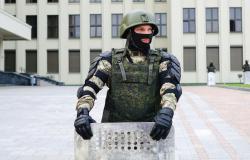Defending Civic Space During and After the Pandemic

Thomas Carothers, Carnegie Endowment for International Peace, argues that donors and private aid providers need a civic space defence strategy fit for purpose in the emerging post-pandemic context.
Multiple studies of the effects of the pandemic on civil society, including a major IDS report released last week, paint a discouraging picture. Civil society has come under assault from many directions at once, including executive overreach, securitisation of public life, the constriction of online freedoms, sharpened social divisions, and reduced official tolerance for criticism and open debate. This daunting reality raises the question of how the community of public and private actors working to defend civic space globally should respond. What was already a serious challenge before the pandemic is now all the harder and more urgent. Simply offering more-of-the-same strategies in this new context is not enough.
On the multilateral policy plane, several steps are needed. First, As the head of USAID and Swedish development cooperation emphasized in an event on 24 May, now is the time to push all governments to set concrete plans for lifting emergency restrictions on civic freedom when possible—replacing early pandemic “anything goes” attitudes about such measures with a clear insistence on proportionality and reasonableness for restrictions that curtail basic rights of expression, assembly, and association.

Second, civic space defenders should advocate forcefully for commitments on respect for civic space at the cascade of major multilateral summits occurring over the next 12 months. This includes the G7 in June, UNGA in September, the G20 in October, the Open Government Partnership Summit in December, and the Biden administration’s planned Summit for Democracy after that. This confluence of relevant multilateral gatherings is a major opportunity for reinforcing normative commitments on civic space.
Third, concerned public and private actors should fight to shape the narrative on the political lessons of the pandemic, pushing back against claims by China and other authoritarian governments that the Covid-19 crisis proved the value of authoritarian control. Smart narrative strategies include highlighting the fact that endemic features of authoritarian governance proved ill-suited to effective pandemic responses wherever they appeared, including denialism, lack of transparency, lack of accountability, and intolerance of local initiative.
At the country level, various new imperatives are present:
- The pandemic has increased social and political polarisation in many countries as governments escalate stigmatization and intolerance to justify or distract from their pandemic shortcomings. Such tactics have grievous narrowing effects on the available space for independent civic activism. Aid providers need to up their game in learning how to help domestic actors push back against polarisation, whether through sharing polarisation-inhibiting strategies with opposition politicians, fostering more extensive civic dialogue and bridging initiatives, encouraging targeted media reforms, or other methods.
- The pandemic has prompted numerous domestic civic actors to work outside of their traditional boundaries, creating new elite-grassroots coalitions to respond to public health emergencies. Aid providers should prioritise support for these coalitions and look to learn from the new ways in which traditional civic groups based in capital cities have built grassroots ties and support in the pandemic context.
- Early in the pandemic, many funders shifted civic support away from advocacy organizations toward groups providing basic health and relief services. Although that was an understandable adaptation to the pandemic crisis, it is time to begin shifting some aid back to advocacy organizations so that they can help define and push for post-pandemic policy reform priorities.
- The burst of public health spending in many countries, often supplemented by large new aid inflows, has fueled corruption, angering citizens and undercutting effective pandemic responses. More support is needed for civic actors of all types—grassroots, national level, transnational—engaged in anticorruption work.
- The social and economic consequences of the pandemic in many countries have fallen much harder on women than men and have exacerbated other gender-related problems, including violence against women. Now is the time for a major upgrading of support for women’s rights groups and efforts to bolster women’s political empowerment.

In short, donors and private aid providers need a civic space defence strategy fit for purpose in the emerging post-pandemic context. Building and implementing such a strategy will be a challenge given the vastness of needs and opportunities as the world begins to recover. But the ability of citizens to engage openly and freely in social, economic, and political life is not a luxury item – it is a central dimension of building back better everywhere.
This first appeared on From Poverty to Power and was reposted with permission as the blog is under maintenance.
Photo by Artem Podrez from Pexels


